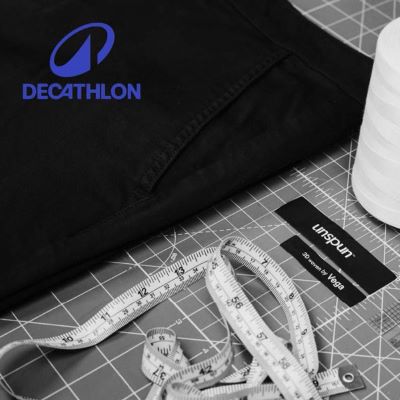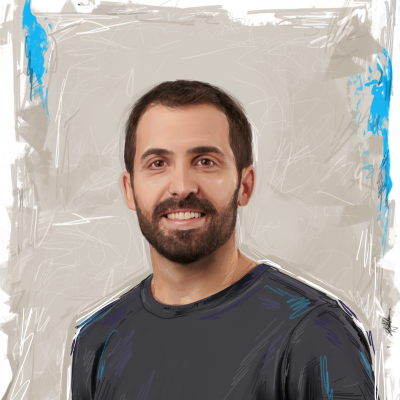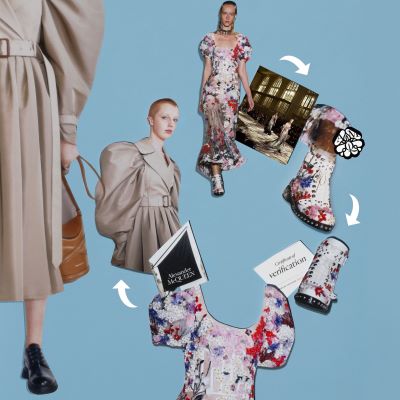Register to continue reading for free
Katrin Ley from Fashion for Good: shifting the fashion industry towards circularity by championing innovations

Since its founding in 2017, Fashion for Good has been at the forefront of transforming the fashion industry. The Amsterdam-based platform has catalysed meaningful change through its innovative initiatives and collaborative approach, driving the global fashion ecosystem towards a circular and regenerative future. In this exclusive interview, Managing Director Katrin Ley shares insights into Fashion for Good’s journey, its groundbreaking projects and its aspirations for the future.
A Vision for Circularity
“Fashion for Good has been driven by a clear mission: to catalyse a transformative shift in the fashion industry toward circularity by championing innovations”, Ley says. Since its inception, the initiative has aimed to replace the traditional "take-make-waste" model with one that regenerates and recirculates resources. Today, Fashion for Good’s mission remains the same: “to accelerate and scale existing solutions… paving the way for a more sustainable and resilient industry”.
Collaborative Spirit
Collaboration is the cornerstone of Fashion for Good’s approach. As Ley explains, addressing challenges like sustainability, circularity and transparency requires a collective commitment. “These issues are too complex for any single company to tackle alone, requiring diverse expertise and resources to achieve meaningful impact”, she says. Through partnerships with brands, manufacturers, innovators and investors, Fashion for Good fosters co-creation and scales solutions across the supply chain.
One of its standout successes is the World of Waste tool, an open-source platform that maps textile waste hotspots globally. According to the Managing Director, the platform “has the potential to be a game-changer for the fashion industry”. By using it, recyclers can identify “key sources of waste for more efficient operations”. Brands can scale circular initiatives by utilising “the data to target high-concentration waste areas”. Innovators can locate gaps in “waste management and develop tailored solutions”. Lastly, policymakers and researchers can create “data-driven policies that support recycling and waste reduction”.
Supporting Innovators
Fashion for Good plays a vital role in validating innovative solutions for the fashion industry through multi-stakeholder projects and pilots. These initiatives test performance and impact at both lab and pilot scales, with examples including the D(R)YE Factory of the Future Project, the Home Compostable Polybag Project and the Collaborative Ecovative Mycelium Pilot. “These [performance and impact] are two key parameters required for the innovation to continue on its path to scale”, the Managing Director explains.
However, the transition from pilot to full-scale production often faces challenges such as high costs, complex supply chains and inconsistent demand. To address these, Fashion for Good connects innovators with industry partners to “reduce risks and create an environment where these solutions can scale”, as exemplified by The Circ Fiber Club, which provides brands with early access to recycled materials and streamlined supply chain integration.
In addition to operational challenges, financial constraints frequently hinder innovators. Fashion for Good supports innovators at different stages of scaling, offering mentorship and equity investments. “We support our alumni network at different stages of their scaling journey, and we make some equity investments ourselves to help drive their innovations forward”, Ley notes.
Circularity in Footwear
In August 2024, Fashion for Good launched a targeted initiative to address key intervention points across the footwear lifecycle, from design to recycling. “We hope this initiative will set a new industry standard”, Ley shares.
The initiative, named Pioneering the Future of Footwear, builds on projects like the Fast Feet Grinded pilot, which tests and validates innovative footwear recycling processes. “This is just the beginning, but the momentum is building to accelerate scalable solutions that will significantly reduce waste and resource consumption in the footwear industry”, the Managing Director adds.
Future Aspirations
Looking ahead, Ley envisions Fashion for Good as a catalyst for systemic transformation beyond incremental improvements. “I see a future where our collaborative innovation model not only accelerates sustainable practices but also becomes the standard for the entire industry”, she shares.
With bold initiatives and a growing network of collaborators, Fashion for Good is setting the stage for a fashion industry that is not only sustainable but also resilient and inclusive. “Our recent initiatives, such as our project looking into advancing biosynthetics and tackling textile waste on a global scale, are examples of the kind of bold projects we will continue to champion in the coming years”, Ley asserts.
More information about the Fashion for Good initiative can be found HERE
Image Credits: Art by Sofia Pádua






